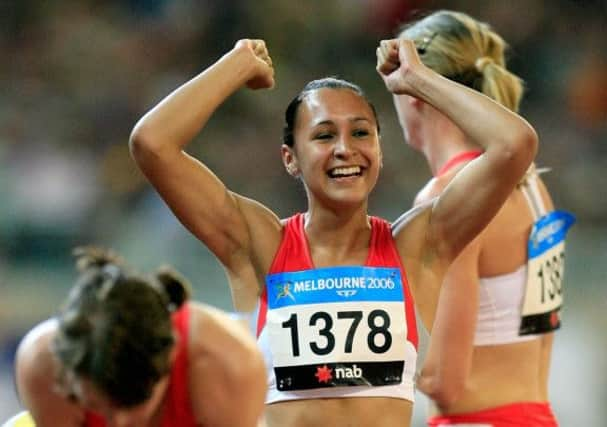Glasgow 2014 will not be defined by big names


The announcement of Jessica Ennis-Hill’s pregnancy last Friday was the latest in a series of reality checks, further eroding our pitiable optimism that the next home Games would be regarded as a priority for a good number of those very special athletes who wear an invisible VIP on their vests.
It is quite conceivable that this reproductive event was unplanned, but the timing makes us sceptical. Had the darling of British athletics waited until after Rio to start a family, she would have been approaching 31. There was clearly a window here, and the negative consequences of exploiting it, upon consideration, might have been deemed to be within the Olympic champion’s pain threshold. Ennis-Hill has been a rigid diplomat in every utterance she has made concerning Glasgow 2014 but this is not an event that would have defined her career. It was expendable in a way that London and Rio would never have been.
Advertisement
Hide AdAdvertisement
Hide AdGlasgow 2014 is a beast that needs to be kept in its cage if it is to be properly appreciated. If the excitement gets out of control, people will end up disappointed and there is no evidence to suggest that the Games will be a let-down if viewed through the appropriate lens.
The Commonwealth Games will matter most to a group of participants regarded collectively as Team Scotland, a clutch of 250-odd sportspeople who know this is a one-off opportunity to compete for their country in front of a big home crowd and be acclaimed on a podium, feeling the satisfaction of sacrifices validated to the tune of O Flower of Scotland.
Were this image a hard sell, the organisers would not have already sold nine-tenths of their tickets because the vast majority of ticket-holders knew they were never going to see the heptathlon, nor the men’s 100 metres, nor the track cycling, where the clamour was. Most spectators will happily trot along to whatever sport has taken their fancy, whether through familiarity or novelty, hoping to be thrilled by what they see, and the greatest source of intrigue will be the prospect of Scots mixing it with high-class athletes from other countries.
Had Ennis-Hill turned up in mint condition for the heptathlon, it would have been a parade, not a contest. Spectators would have been able to say they had seen the great woman in the flesh, but the drama that is the most compelling and memorable element of any Games will be elsewhere.
Where the absence of Ennis-Hill will be felt is on the screen. It matters to broadcasters, and to sponsors, that when armchair viewers tune in, they recognise who they are watching quickly enough to negate the temptation to change the channel. If there is no Mo Farah and no Usain Bolt, compounding the blow of no Ennis-Hill, no Chris Hoy, no Victoria Pendleton and no Rebecca Adlington, the TV audience will struggle to reach Glasgow 2014’s estimated figure of 1.5billion.
The international broadcast rights sale is not yet a done deal, so there is a concern here about revenue, and about the tourism spin-offs that result from an event having the maximum “reach”. But for most of the people who will invest something in these Games, this uncertainty will not make or break their experience.
Glasgow 2014 was always destined to be more about the best athletes in Scotland challenging the egos of higher-rated rivals from England, Wales, Australia, South Africa and Jamaica. The drama that distinguishes good sport from bad sport will be created by cross-border battles involving our very best exponents of minority sport – the Michael Jamiesons, the Lynsey Sharps and their unsung compatriots in bowls, shooting and judo.
The Commonwealth Games matter so much to these people as to be career-defining, and their effort, exaltation, agony and grief will be the things that keep us compelled between 24 July and 3 August. If any Bolts and Farahs and Sonny Bill Williamses turn up, it will be a bonus, and they will grace the stage like museum exhibits. But don’t be surprised if there are a few more celebrity no-shows.
Advertisement
Hide AdAdvertisement
Hide AdIf Argentina were coming to Hampden and Lionel Messi pulled up with a hamstring strain a week beforehand, would we toss our tickets into the Clyde?
Ennis-Hill’s omission is of course a blow. But if it made you rip up your ticket, you were probably operating under a misapprehension when you bought it.